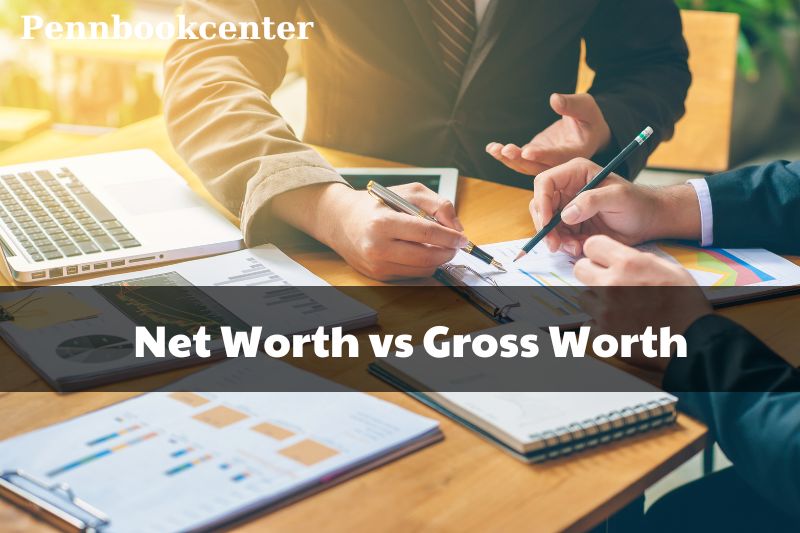Can a millionaire still be financially trapped? The answer lies in understanding the real difference between net worth vs wealth.
A high net worth might look impressive on paper, but if that money isn’t accessible or generating income, it doesn’t equal freedom.
At PBC, our goal is to help readers see beyond the numbers and recognize what truly matters: the ability of your money to support your life without constant effort. In this article, you’ll discover what wealth really means, how it differs from net worth, and how to align your finances with your personal freedom.
What Is the Real Difference Between Net Worth and Wealth?

Many people assume that having a high net worth means they’re financially secure. But that isn’t always true. Net worth is just a snapshot of your assets minus liabilities—it reflects what you own.
Wealth, on the other hand, speaks to how much freedom your money provides. One measures value; the other measures usefulness.
Someone with a large home, luxury cars, and a 401(k) might appear wealthy. But if they can’t access most of that money without penalties or selling physical assets, they may struggle with cash flow in real life. That’s where understanding the difference becomes critical.
How Does Wealth Reflect Financial Freedom?
Wealth is often best understood through the lens of financial freedom—how long you could maintain your lifestyle without actively working. One key principle is that wealth is defined more by time than by dollars.
Imagine two individuals: one has millions invested in retirement accounts, but no cash-flowing assets. The other has a modest net worth but earns enough passive income to cover all expenses. In this case, the second person is financially free, because passive income reduces the need for active employment.
While the first person may seem richer, they’re not truly wealthier. That’s the power of financial usability.
How to Measure Wealth in Practical, Real-World Terms
Net worth is a helpful tool—it shows progress. But it has limitations. Many people calculate their net worth based on assets that aren’t easily converted to cash: their home, retirement savings, and valuables.
These assets, while significant, have access restrictions. Selling a house isn’t fast or simple. Withdrawing from a retirement account may lead to taxes and penalties. In short, net worth includes illiquid assets, which don’t always help in daily life.
Compare that with someone who generates consistent income from investments. For example, earning $10,000 per month in passive income means they can live comfortably without touching their net worth at all. That’s a practical definition of wealth.
How Passive Income Transforms Your Financial Reality
The difference between financial stress and financial freedom often lies in passive income. This kind of income comes from sources that don’t require daily effort, like rental properties, dividends, or side businesses.
These cash-flowing assets contribute to wealth by creating a consistent income stream. The more you rely on these sources, the less you need to depend on earned wages. Over time, this shift in income structure produces steady income and increases financial flexibility.
When someone’s lifestyle is funded by these income-generating assets, they’re no longer tied to a paycheck. That’s when net worth becomes truly functional.
The Role of Asset Liquidity in True Wealth
It’s easy to be impressed by someone’s million-dollar home or seven-figure retirement account, but those assets can’t easily be spent. Liquidity matters. You need cash or quickly accessible funds to pay for daily expenses.
Many high-net-worth individuals are actually asset-rich but cash-poor. Their money is tied up in things that can’t be sold or accessed easily. This is why liquid assets increase accessible income and make a person truly wealthy.
The takeaway? Net worth tells one story; income usability tells the full story. Focus not just on what you own, but on what you can use.
Case Studies: He Has More, But She Is Wealthier

Let’s look at a simple comparison.
One person earns a high income and has accumulated $4 million in assets over two decades. Most of it is tied up in a large home and retirement funds. They save diligently but don’t invest in income-producing assets.
Another person, younger in their career, has a net worth of $1 million. However, half of their wealth is in real estate that generates rent and small businesses that produce monthly income.
Despite the wealthier number on paper, the first person still relies on work to maintain their lifestyle. The second, thanks to passive income, could maintain financial independence regardless of employment. This illustrates how wealth depends on income usability, not just the size of your portfolio.
How to Transition From High Net Worth to Real Wealth
Turning net worth into actual wealth requires a strategic shift. Begin by identifying illiquid or non-productive assets and redirecting efforts toward investments that generate cash flow.
That could include:
- Rental properties
- Dividend stocks
- Online or service-based businesses
This transition allows you to convert a financial metric into functional wealth. With consistent income streams, you’re no longer just tracking money—you’re living from it.
Can You Build Wealth Without a High Net Worth?
Yes. Wealth isn’t exclusive to those with millions. Someone with a $2 million net worth who earns $13,000 per month in passive income may be far more financially free than someone with $5 million tied up in inaccessible accounts.
Wealth is not defined by the total—but by what that total does for your life. If your income covers your lifestyle and gives you time freedom, you’re wealthier than someone with a bigger number who can’t afford to stop working.
You can get to top 5% net worth with this life style.
Conclusion
Net worth matters, but only when paired with usability. Wealth should support your lifestyle, not just look good on a spreadsheet.
We’d love to hear how you’re building wealth in your own way. Drop a comment, share this article, or explore more financial deep dives at Pennbookcenter.com.




